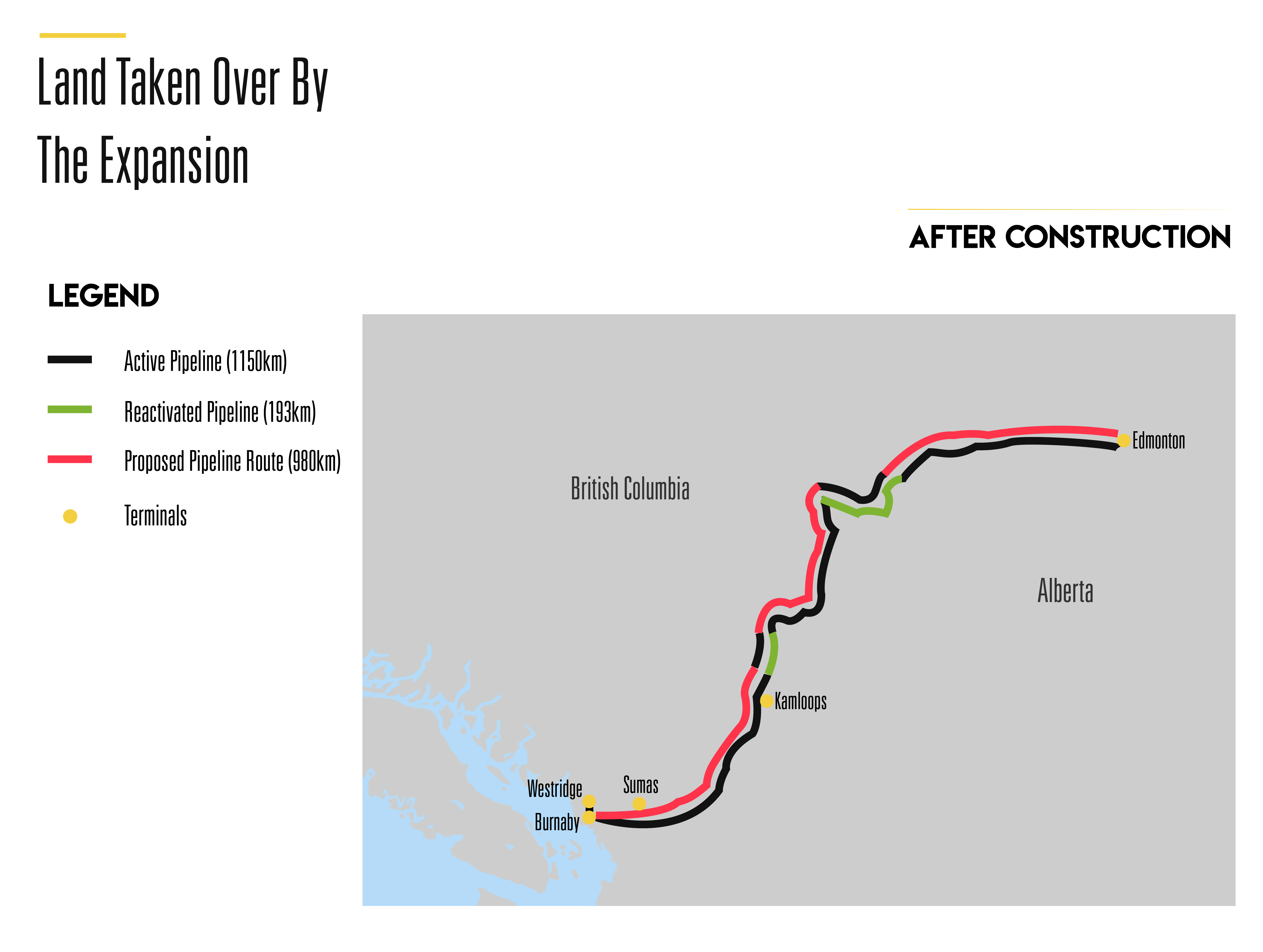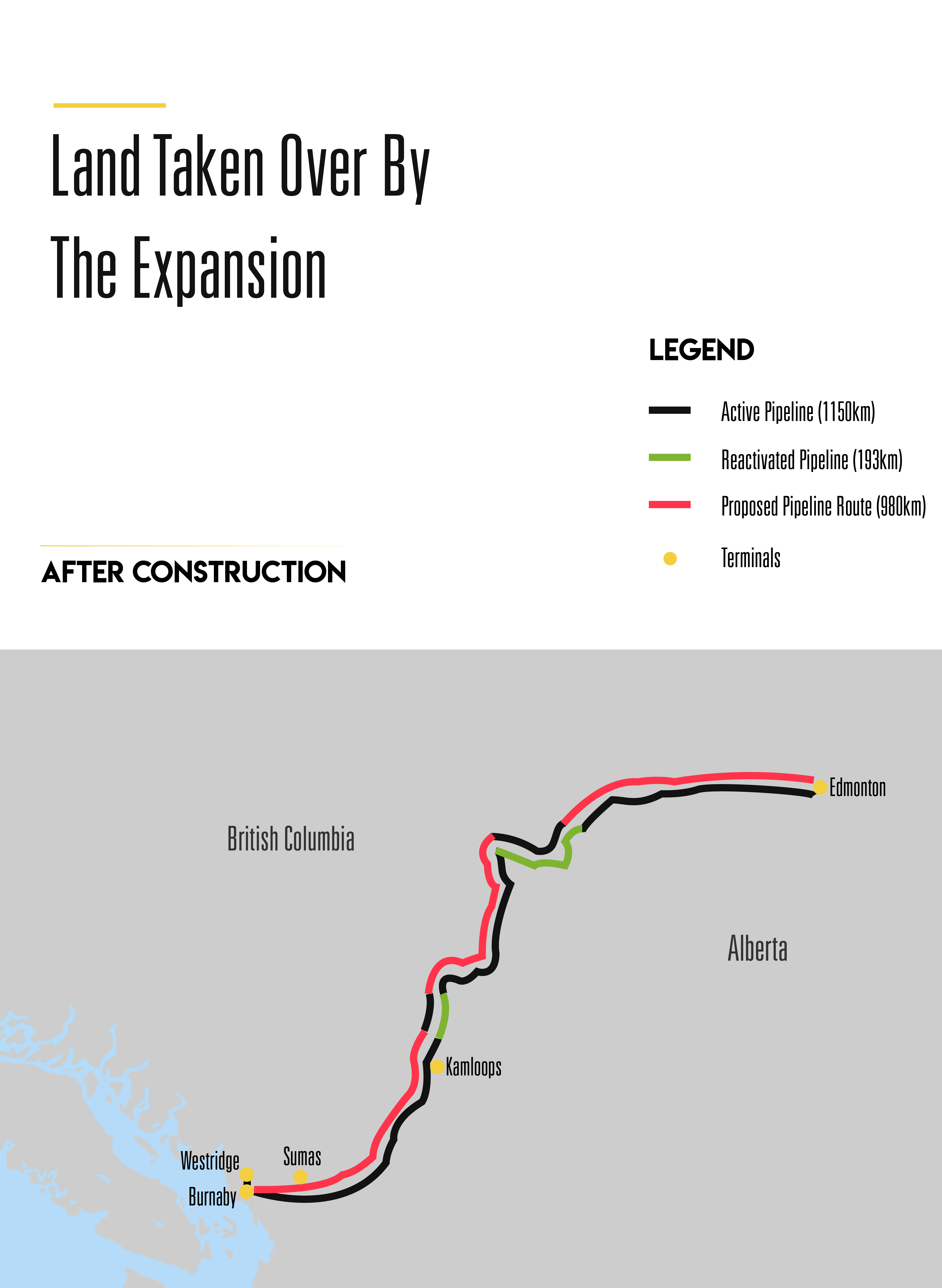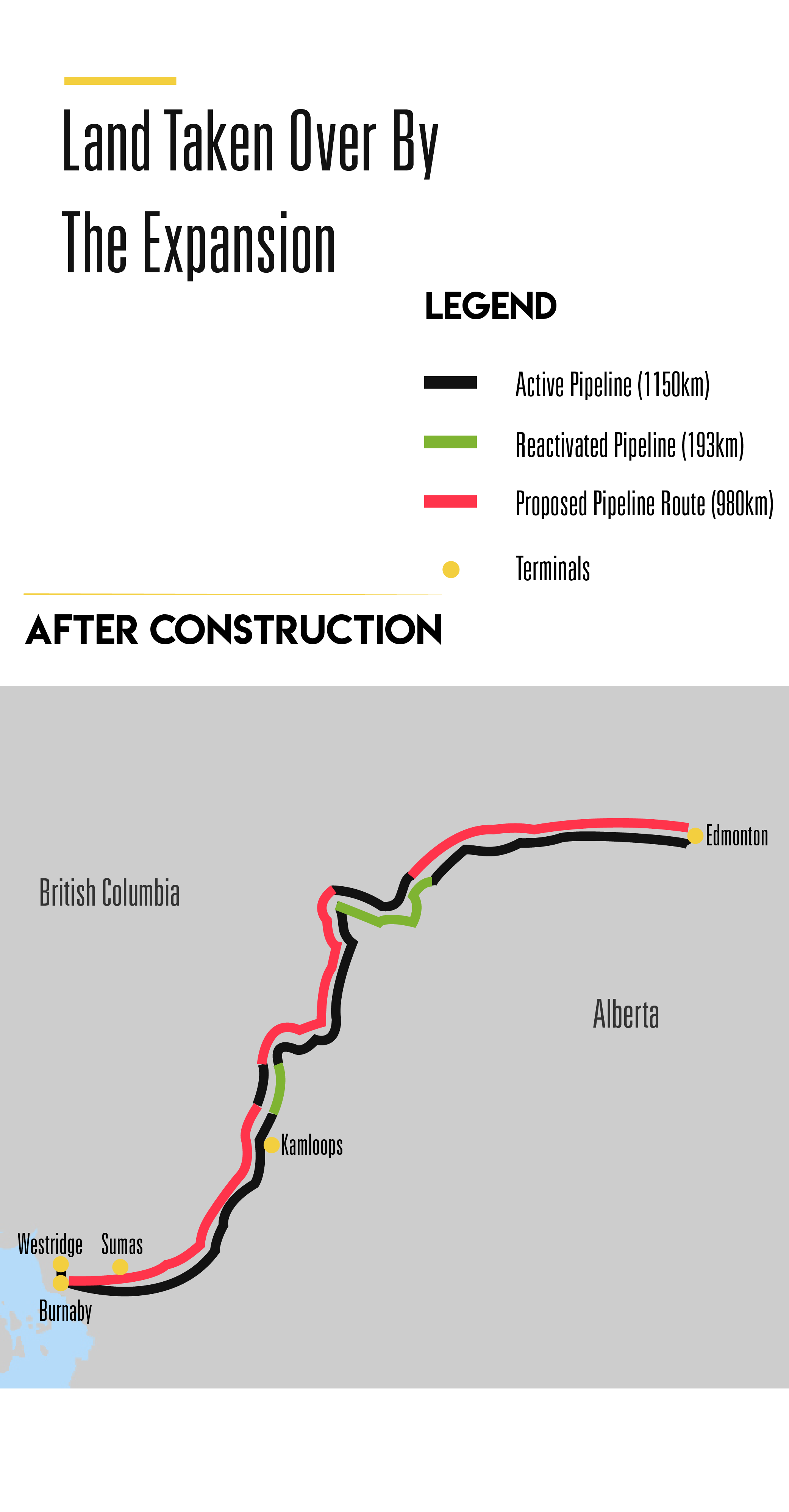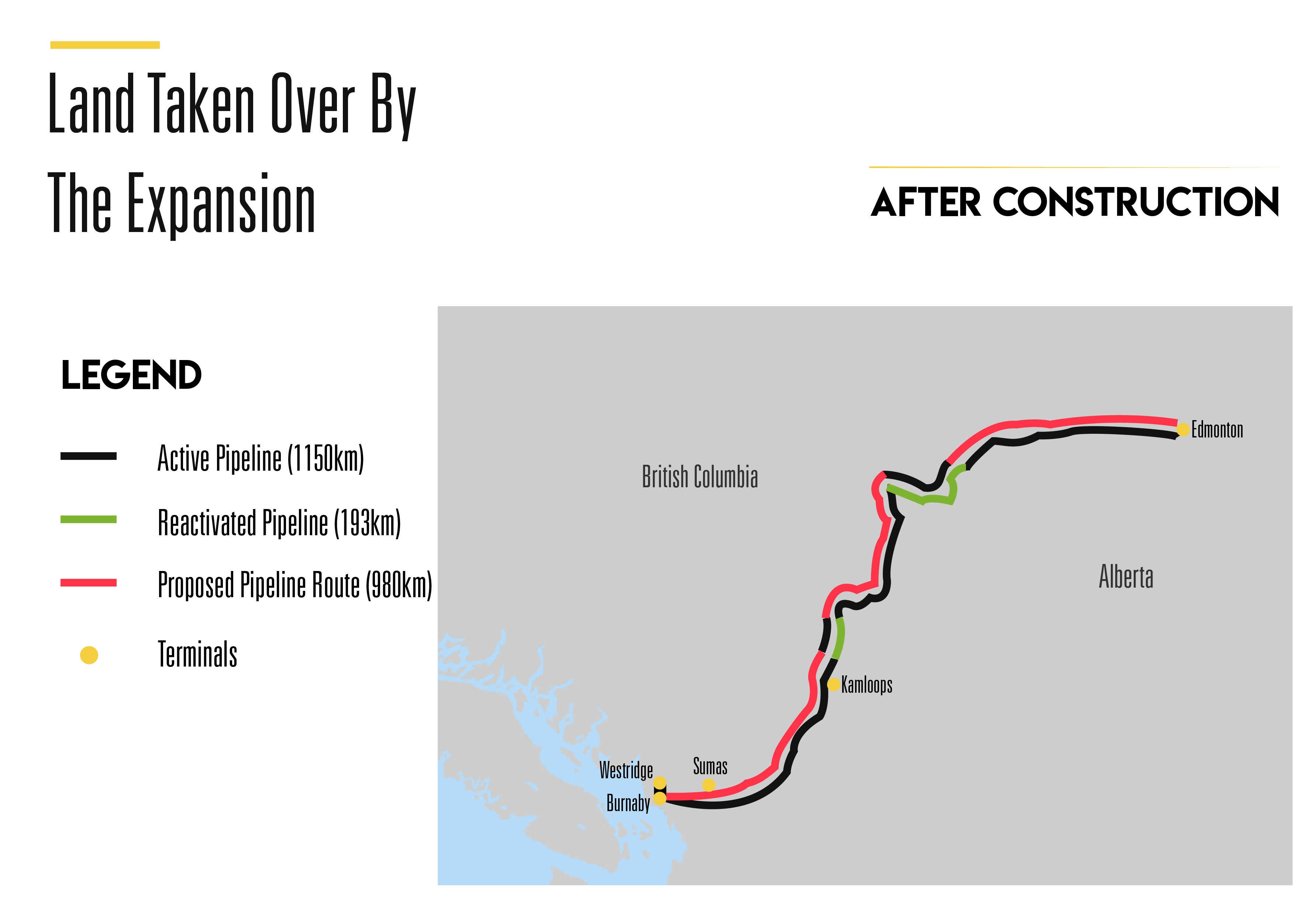ecosystem
The Trans Mountain Pipeline expansion will have consequences on the environmental system. This involves the risk of oil spills and how it will affect the environment from the animals and their habitats. If a spill occurs, wildlife will be heavily affected by the disruption of the ecosystem due to the construction, operations, potential accidents, and malfunctions of the pipeline.
post expansion
After the completion of the Trans Mountain Pipeline Expansion, the chances of an oil spill whether small or large will increase by 87%. In the past, the amount of oil spilled per spill was over 200,000 litres of oil, but after 2011 the litres of oil spilled per spill almost halved. Instead, the number of spills per year increased to about two times per year (Trans Mountain, 2017). From this data, people are worrying about the construction of the pipeline expansion. Also, when a spill occurs animals and their habitats will be affected (TWN Sacred Trust, n.d.).

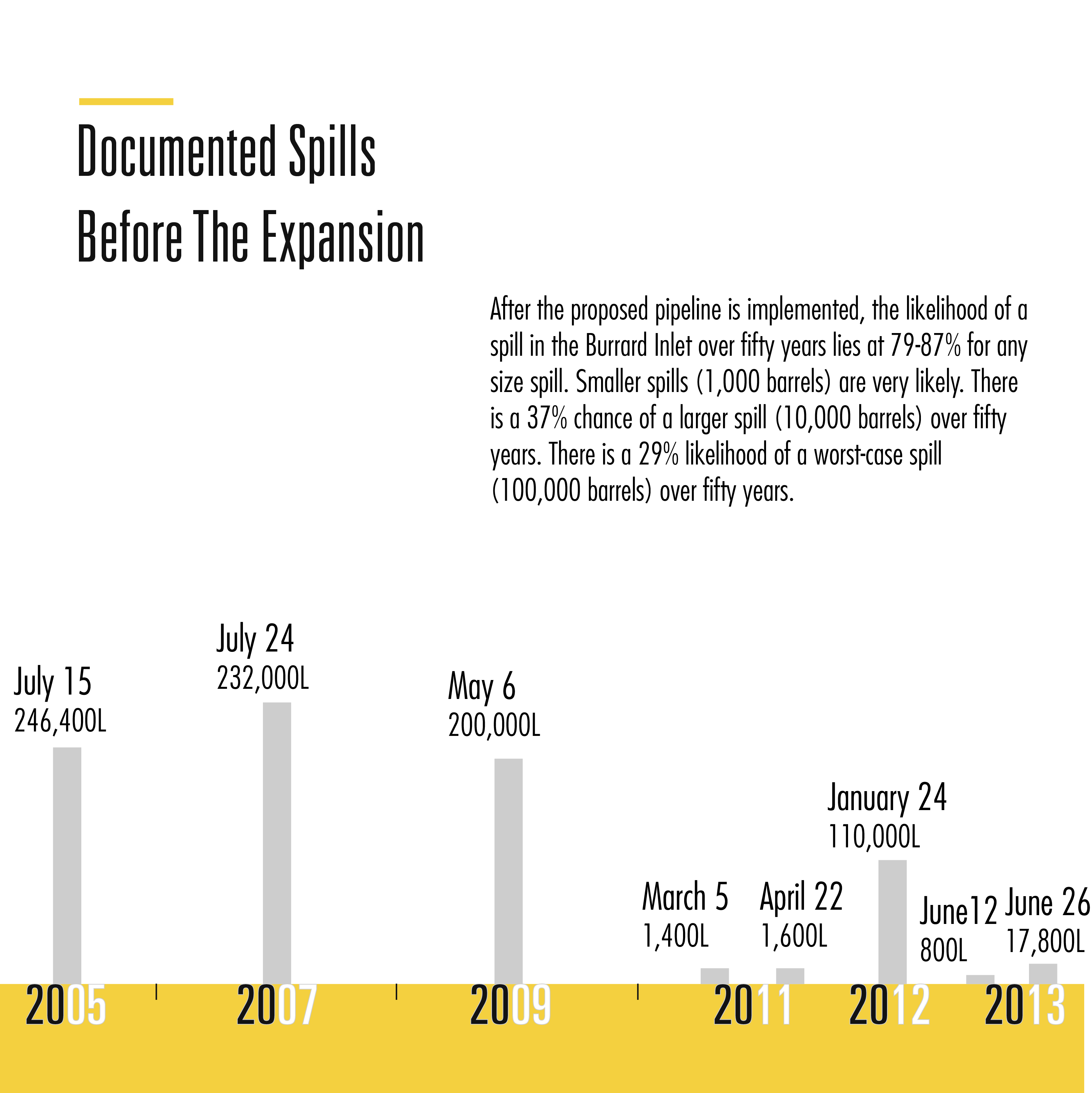
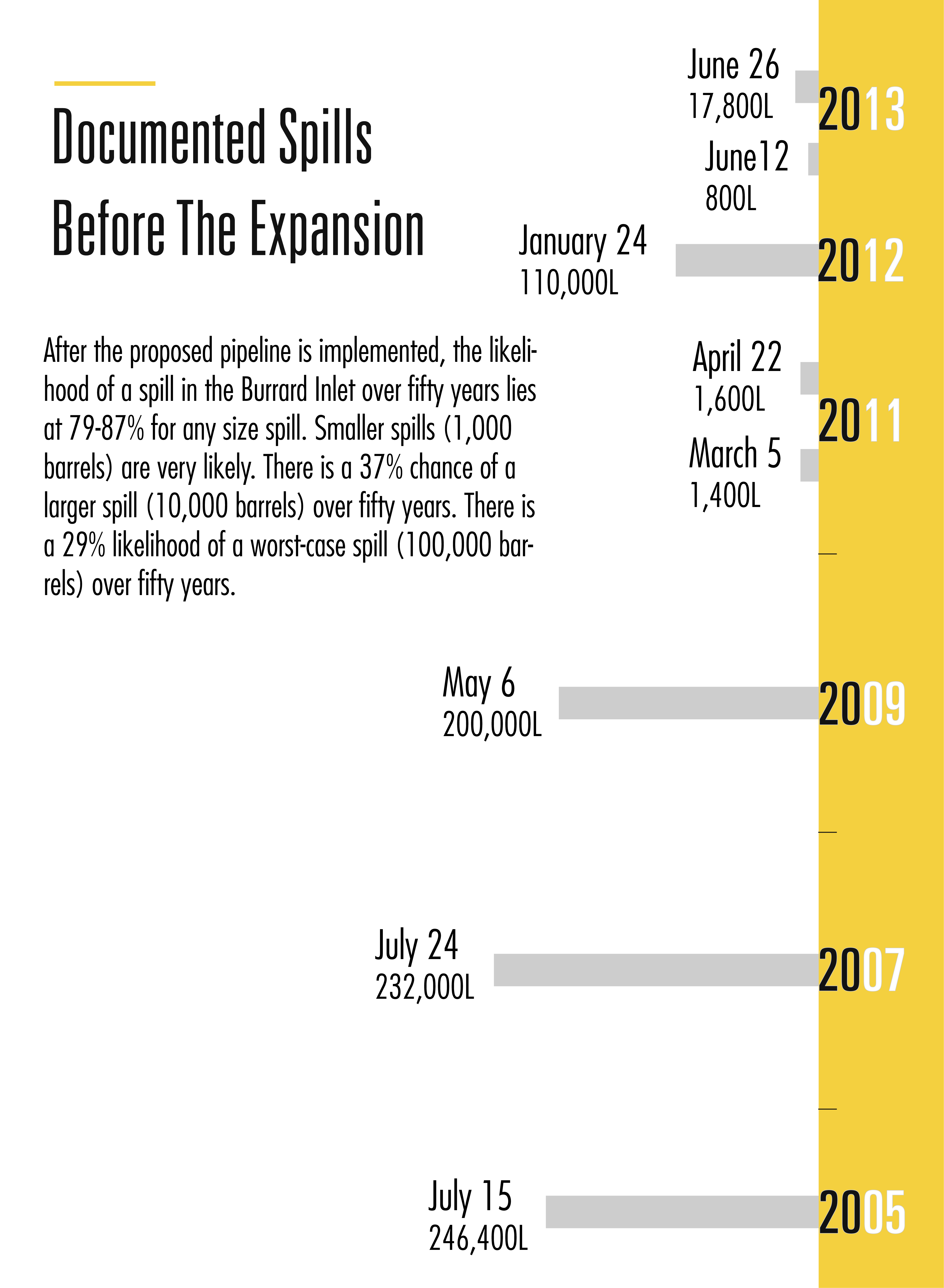
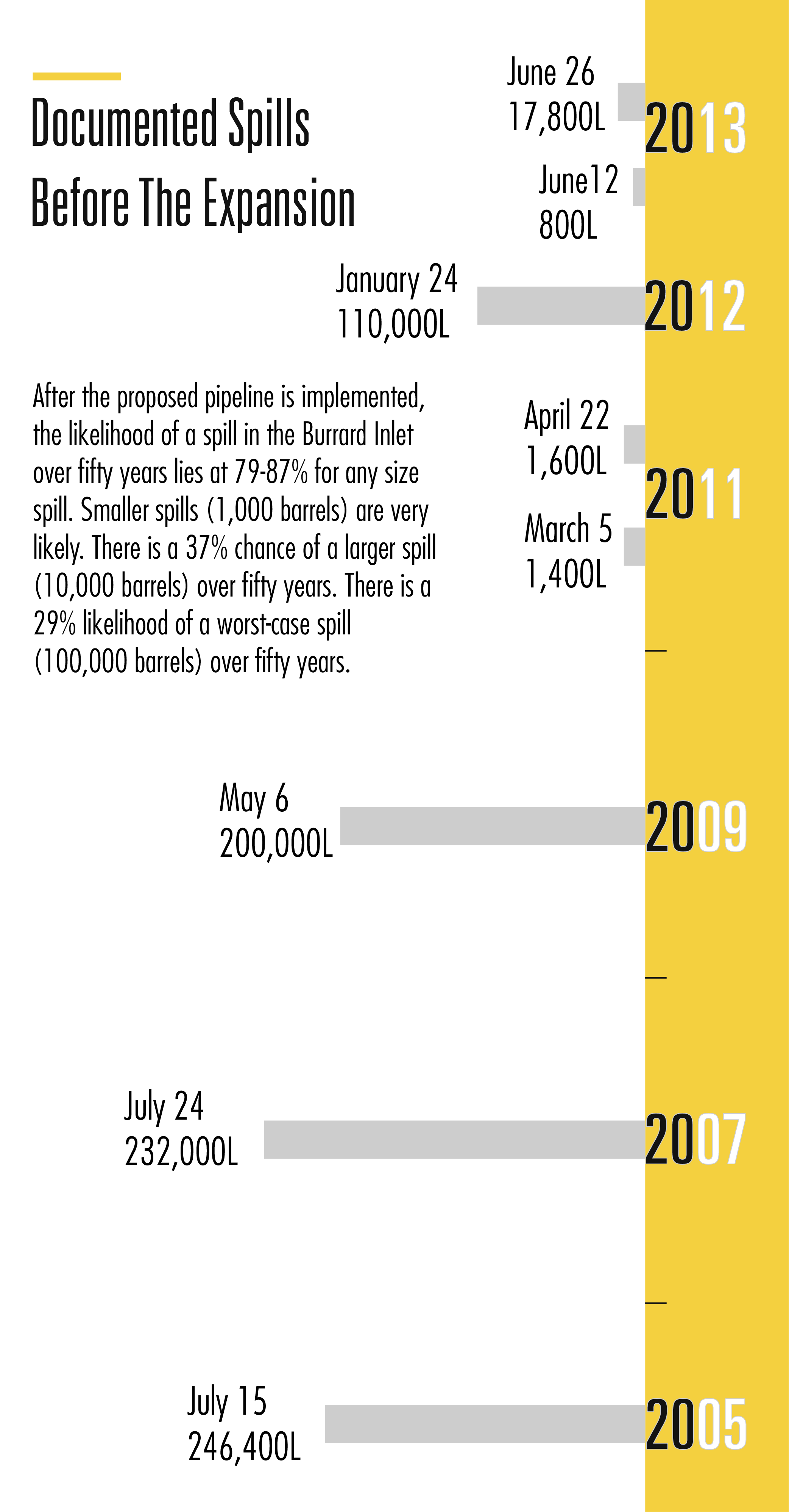
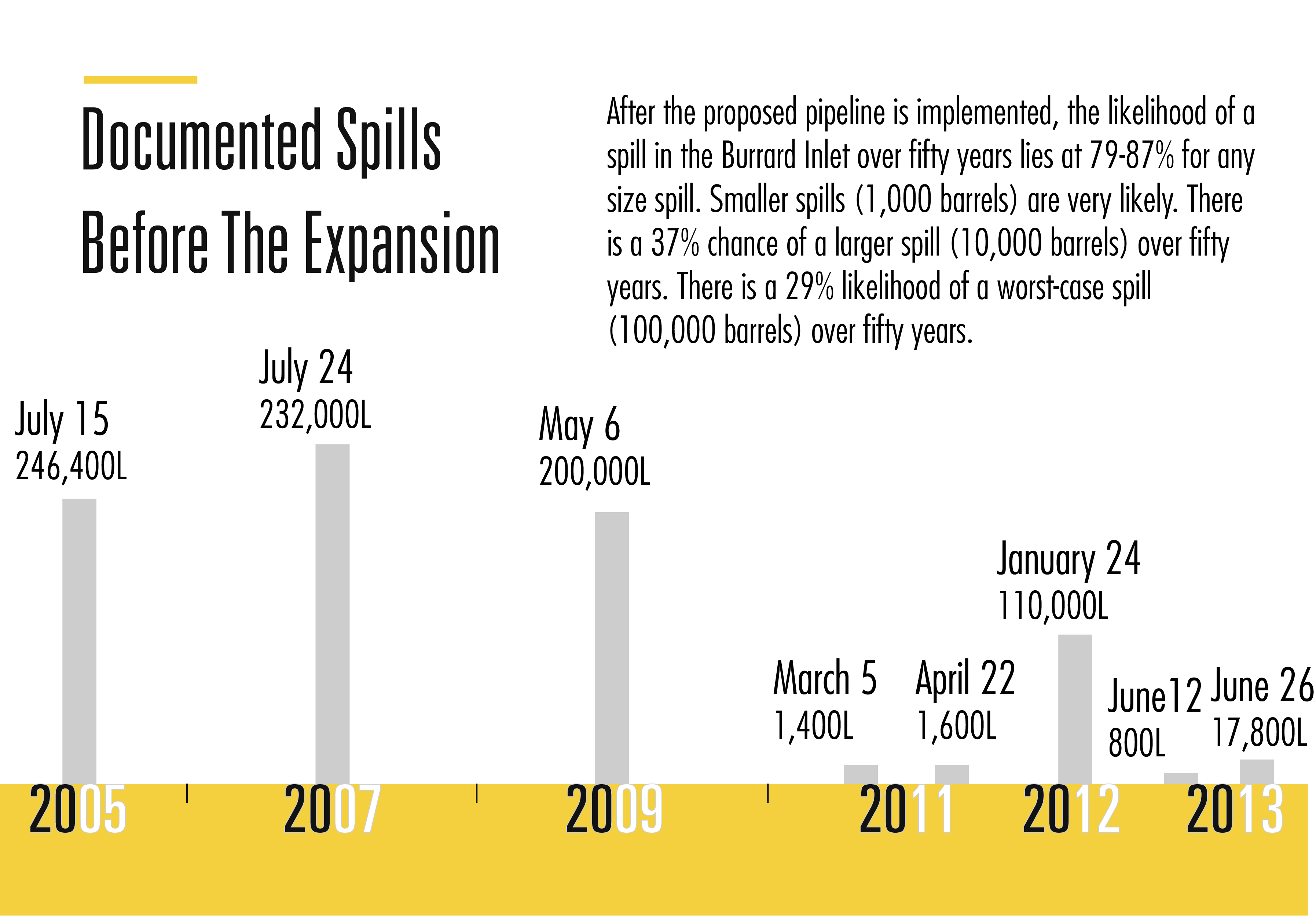
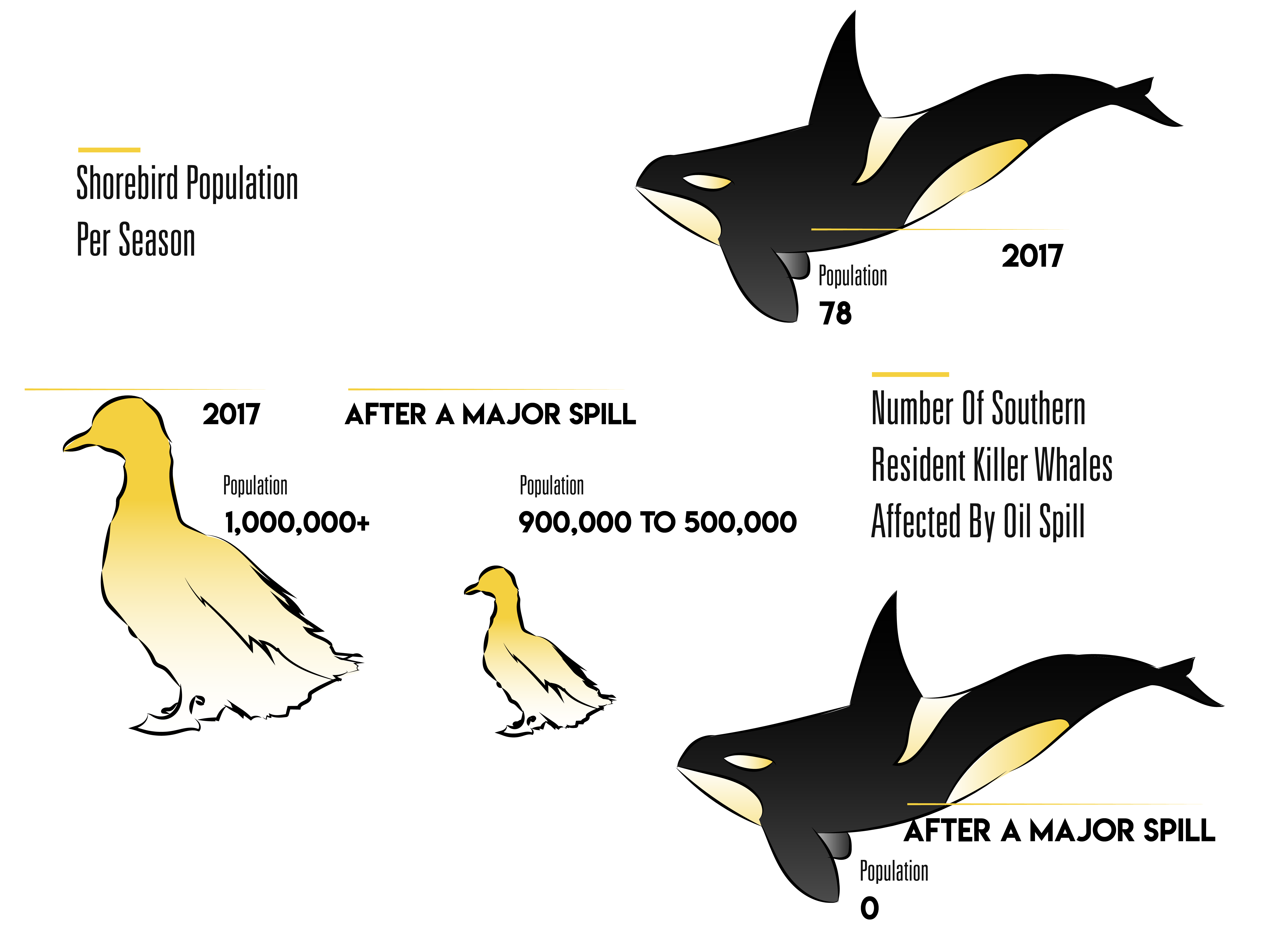
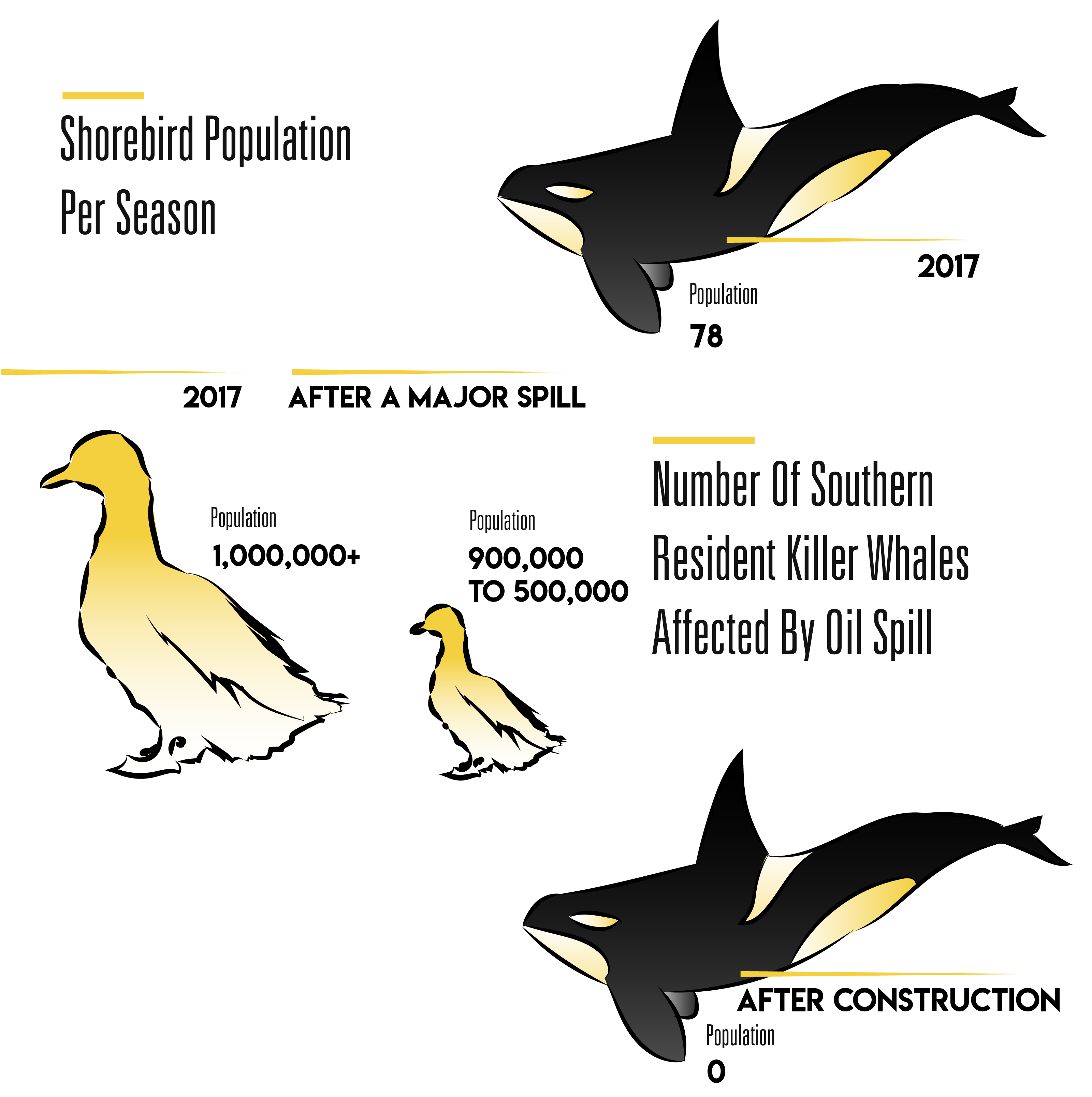
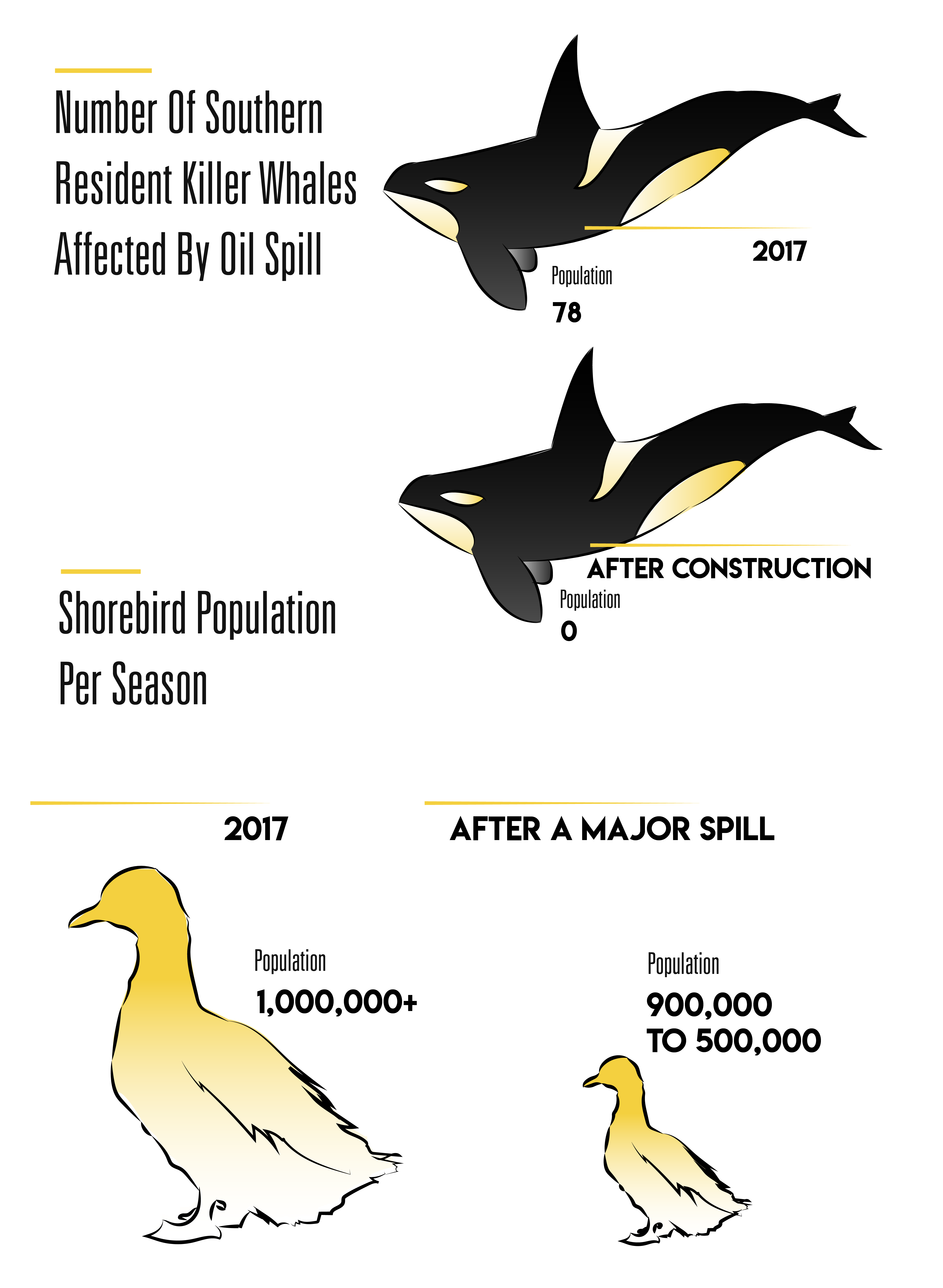
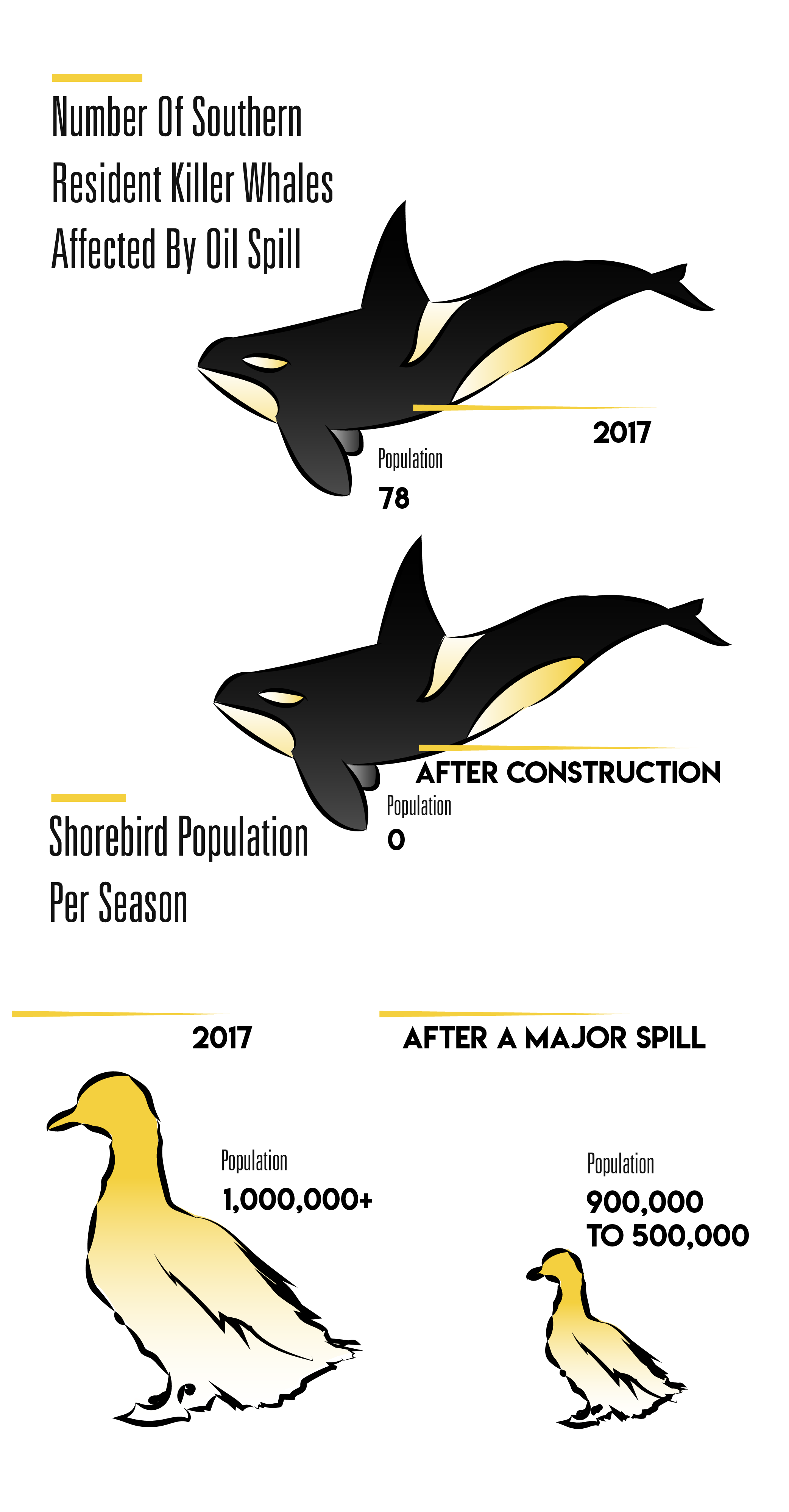
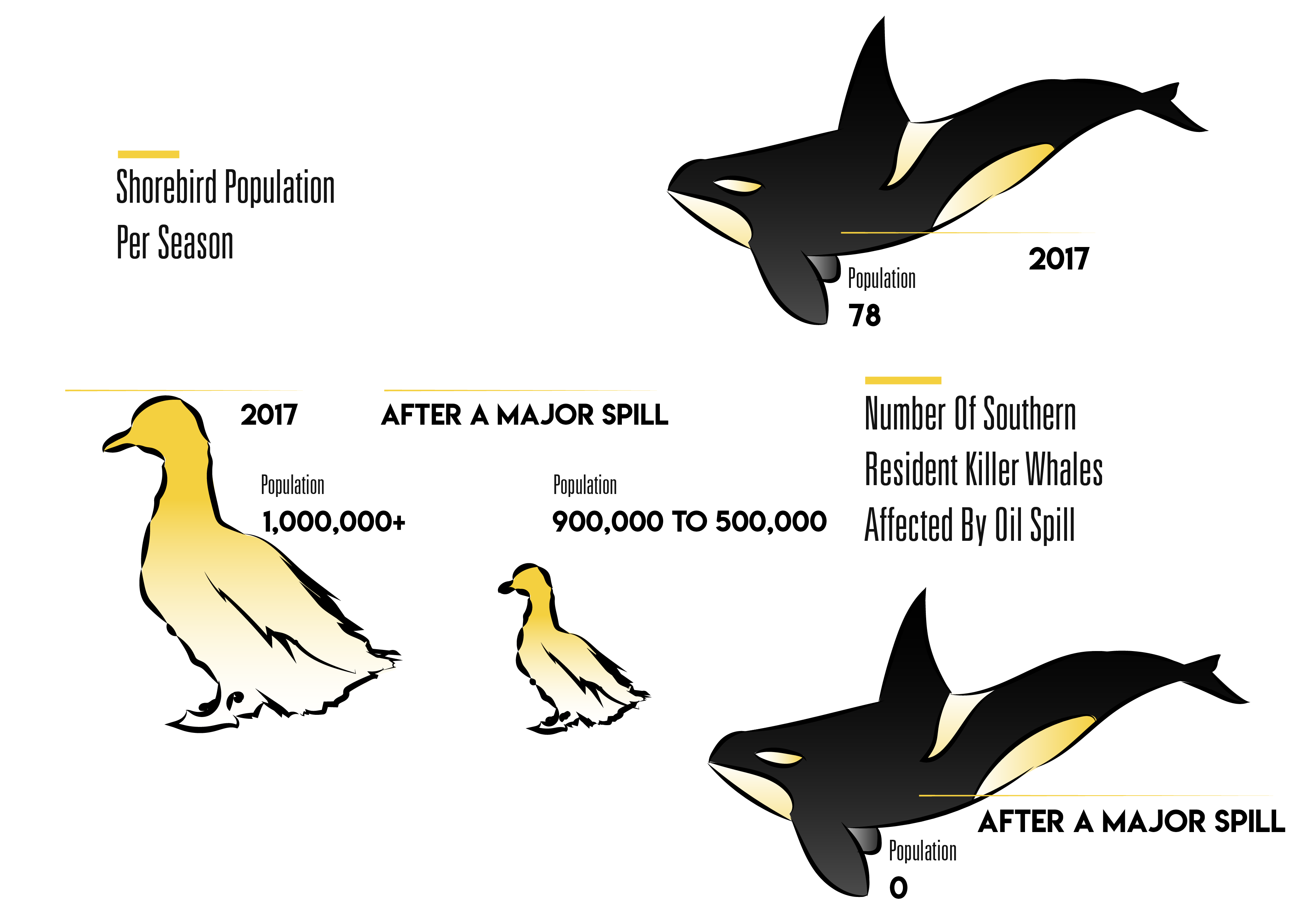
the animals
As of now, the current shorebird population per season exceeds over 1,000,000 shorebirds. However, if a worst-case spill were to happen it would cause the mortality of 100,000 to 500,000 shorebirds and trigger major disruptions of food-web dynamics (TWN, 2017). Another marine animal the Southern Resident Killer Whale with already only 78 orcas left could possibly end up going extinct due to the 600% increase in traffic. This is deadly to the orcas, because the orcas use echolocation to hunt prey and communicate as a pod. With the increase in noise by this traffic, it will decrease their odds of catching food (MacDuffee, 2017).
the habitats
The expansion will be in parallel with the existing 1,150km route of the Trans Mountain Pipeline, which was built in 1953 and is the only West Coast link for Western Canadian oil. The Project will add approximately 980 km of new pipeline and reactivate 193km of existing pipeline. To support the expanded pipeline, new facilities will include 12 new pump stations, 19 new tanks added to existing storage terminals, and three new berths at the Westridge Marine Terminal (Trans Mountain, 2016).
